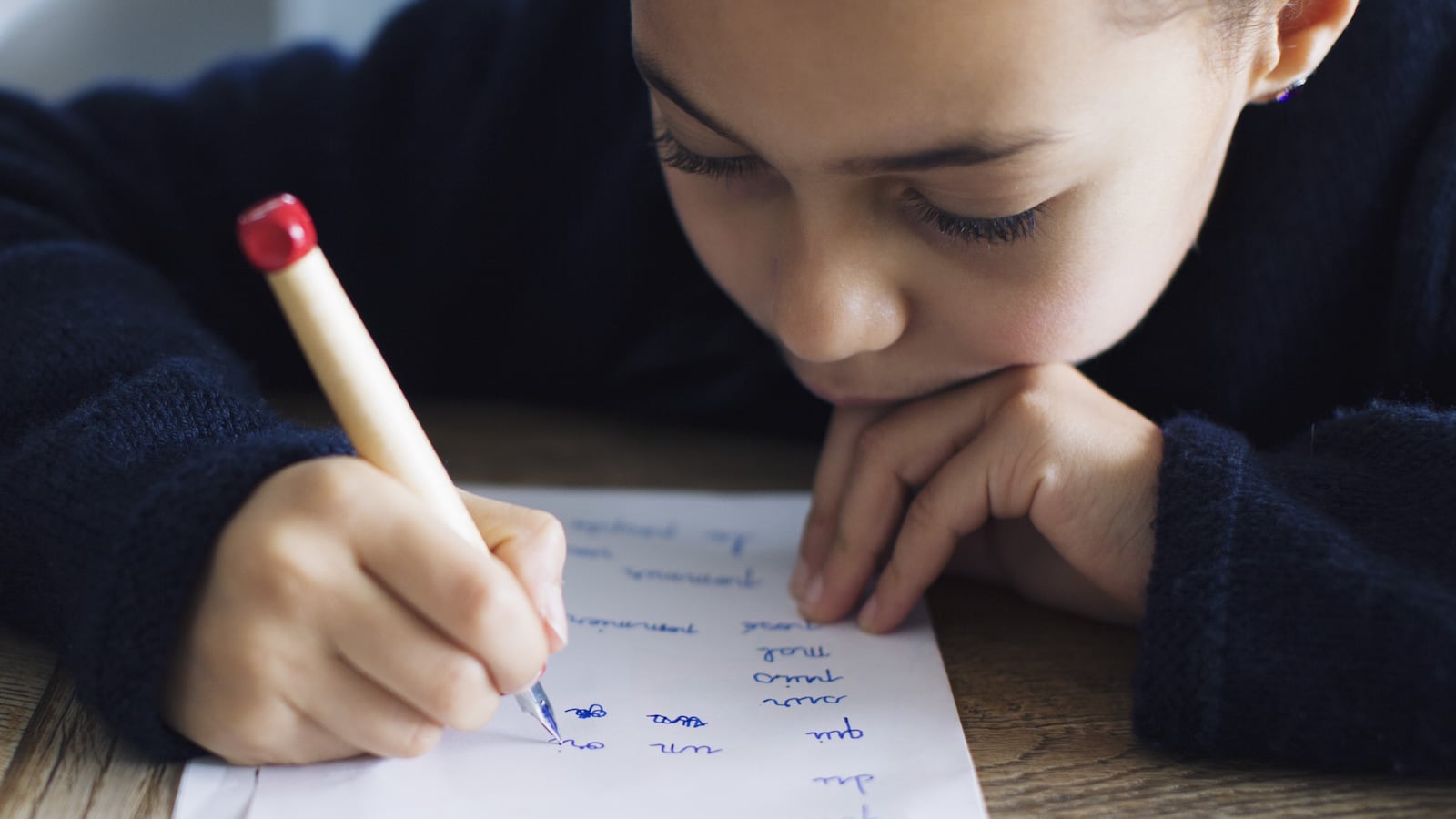Here, in a feature we call How I Teach, we ask educators who’ve been recognized for their work how they approach their jobs. You can see other pieces in the series here.
To better get to know her students, Jaclyn Wehmeier ventures outside of the classroom, to visit each of her third-graders at their homes.
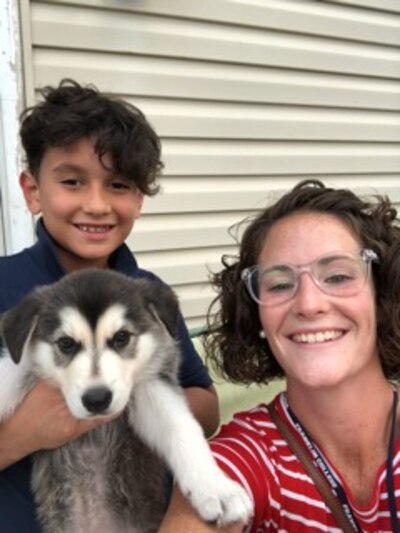
Home visits are part of the teaching approach at Christel House Academy South, an Indianapolis charter school that aims to serve students from low-income families in underserved communities.
During those home visits, Wehmeier can meet her students’ families and learn more about their backgrounds. Seeing more of her students’ home lives has changed the way that Wehmeier approaches teaching.
Wehmeier, who was recently named one of 68 finalists for 2019 Indiana Teacher of the Year, talked to Chalkbeat about how home visits changed her perspective on homework, how she teaches children to love science, and how she learned to manage her own self-care.
This interview has been condensed and lightly edited.
How do you get to know your students?
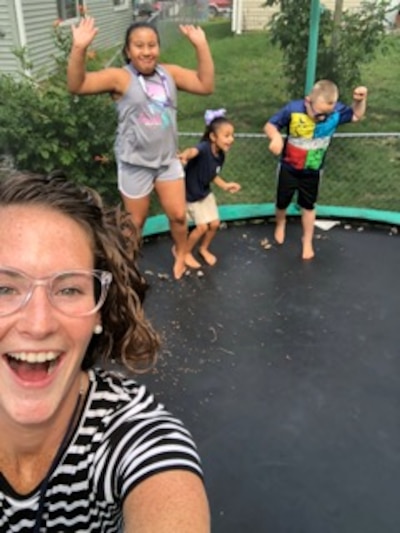
A unique experience that Christel House Academy South has provided me with is home visits. Every year, I get to visit each of my students at their house to spend time with their family, play games, and take a tour of their rooms (which they normally clean for me!). This is a valuable time for me to understand their culture and background. Since it is a school culture for our teachers to visit the students at their homes, students are often very excited and eager for us to visit. During my second year of teaching, I created the Home Visit Selfie craze that has gone school-wide. Every time a teacher visits a student’s house, they take a selfie to hang on the classroom door.
Tell us about a favorite lesson to teach. Where did the idea come from?
I have always loved science and enjoy teaching my students how to love science, too. In third grade, our curriculum starts with a book called “The Case of the Gasping Garbage.” It was about two science detectives, in the same grade as my students, who work together to solve mysteries and conduct experiments. The experiments are provided in the back of the book for the students. I make each student a lab coat that they get to wear throughout all of the experiments and create a classroom that feels like a science lab. The students learn how yeast rises, discover what chromatography is, and problem-solve how to improve our school through community service.
What object would you be helpless without during the school day?
Honestly, I would be helpless without my 1-to-1 computer cart now. I have integrated so much engaging technology into my classroom, I don’t know how I would teach without it. The materials and projects that my students are able to produce at such a young age on a computer is inspiring. It has taken me from a lecturing teacher to a facilitating teacher who guides students on their own discoveries. Also, I would be lost without my Apple Watch. Checking my texts messages, emails, heart rate, and stopwatch with ease makes the day run so much more smoothly.
Tell us about a memorable time — good or bad — when contact with a student’s family changed your perspective or approach.
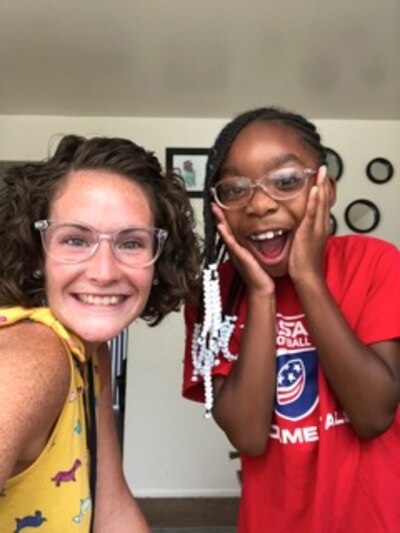
After going on so many home visits with my students, my perspective about homework has changed drastically. I used to give packets of homework and expect the students to have them done completely and correctly on time. But after spending so much time in my students in their homes, I realized many of my students do not have a place to work quietly on their homework, or have someone who can help them. Many of my students do not get home from the Boys and Girls Club or from a babysitter until close to or after dinner time. I was placing so much stress on my students for what? Extra work or practice that these students couldn’t complete properly in their home environment. Releasing this stress has helped changed my students’ perspective about school and extra work that they volunteer to do on their own time.
What part of your job is most difficult?
Being a teacher is difficult. I wouldn’t be a teacher if it weren’t challenging to me. But the challenging part of the job personally for me is separating my professional and personal life. Being in my fifth year of teaching, I am starting to understand how to manage self-care and personal time. So often in the past, I brought work home trying to help every single student individually succeed and did whatever it took to make that happen. I have learned that I cannot help every student grow two to three grade levels in one year, and the most important fact is that each student feels loved in my classroom in the morning, at school, and when they go home.
What are you reading for enjoyment?
Reading for enjoyment has not been something that I have done much in my life until recently. I am a very active person and struggle to sit down for long periods of time. However, this summer was the first summer I didn’t work a part-time job in 12 years. I found that I truly had the extra time to just sit and discover what that was like. I have read 12 books in the last two months (that’s probably more than I have read in the last 10 years outside of school work.) I am currently reading “Girl, Wash Your Face” and “Little Fires Everywhere.” My favorite books from the summer were “The 57 Bus” and “Southernmost.” I have committed with my students to read 25 minutes every night as homework just like I ask them to do.
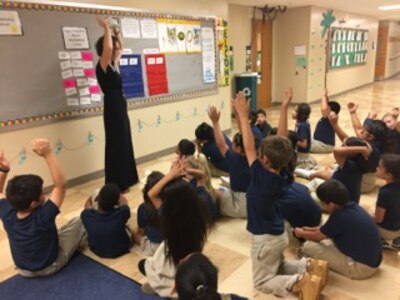
What’s the best advice you’ve received about teaching?
I have learned that there is always tomorrow. A lesson might not go as planned or a student might not behave how you would like, but everyone can be better than before.

